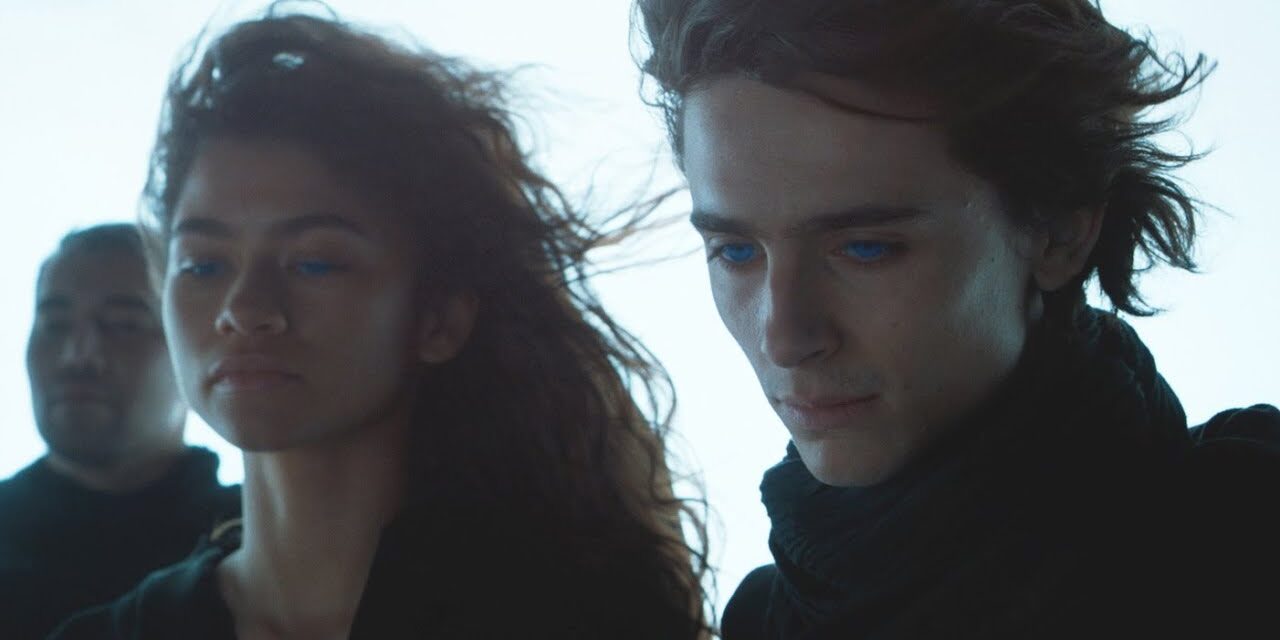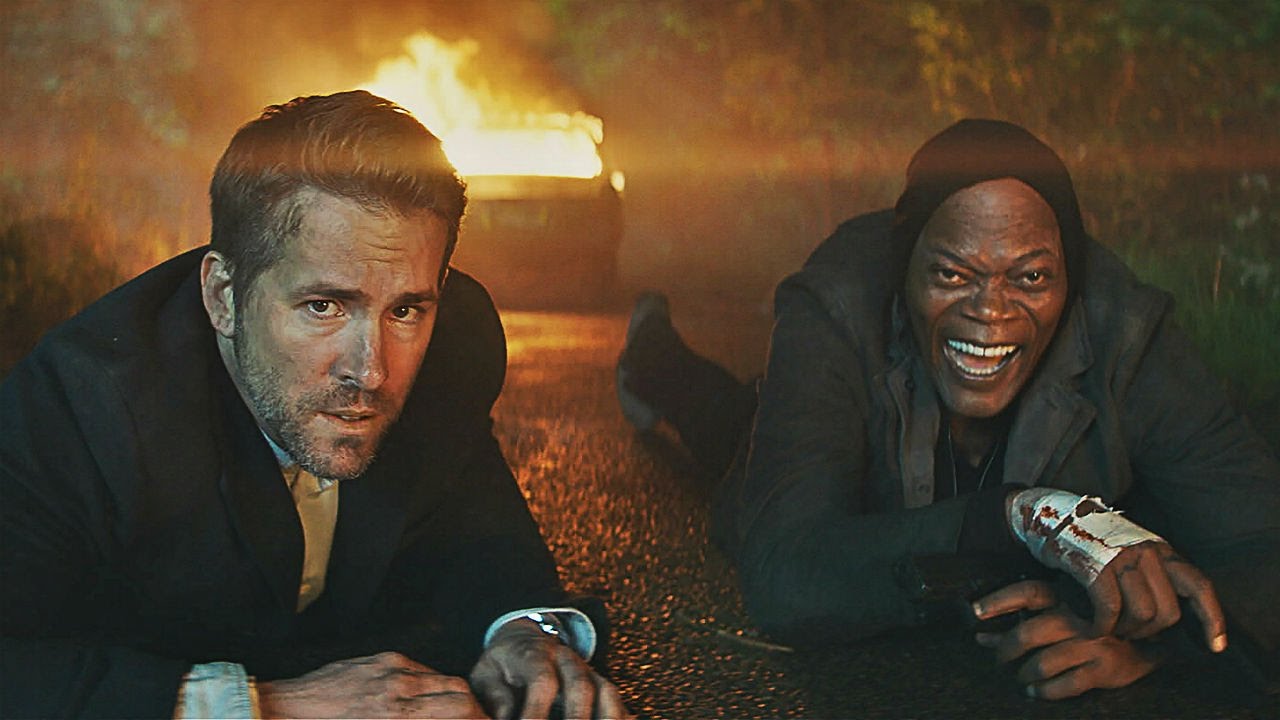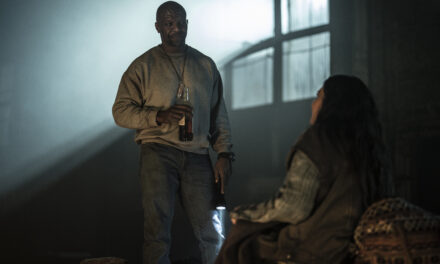Denis Villeneuve’s adaptation of Frank Herbert’s 1965 vast sci-fi novel, Dune, puts on a conquest to rein in its material with atmosphere. It’s hard to ignore the gorgeous nature of the film – often feeling like you’ve been transported into another world entirely. Mentally, you think every rumble of a spaceship, every grain of sand on the desert planet Arrakis, and every glassy stare of each character as they scan something in the distance. As we’ve seen from Blade Runner 2049 and Arrival, Villeneuve has a penchant for setting up an otherworldly atmosphere. In naming Dune his “dream project,” there’s a considerable amount of detail and care with the two-and-a-half-hour-plus excavation. The daunting task was fitting all of Dune’s themes, such as political tensions, betrayal, strife over natural resources, and mind-altering powers in a way that fans and non-fans alike can embrace. Along with writers Eric Roth and Jon Spaihts, Villeneuve certainly had a daunting task ahead of them. Herbert’s novel almost feels like an impenetrable conquest that Hollywood can’t pierce.
2021’s Dune is a movie event in every sense of the word, where cinematographer Greig Fraser sought to make every environment divergent and profound. When you visit the Atreides home base of Caladan, the oceans are plentiful, and waves feel all too real – in contrast to the hot, barren terrain of Arrakis. Just from the look, you can get the sense of division between the house of Atreides and the Fremen, a group of people who live on Arrakis and have adapted to the rough year-round weather. The House Harkonnen, an overarching autocratic body, has been inflicting cruelty on the Fremen, as their planet has a rich resource called Spice. It’s used for various things – healing properties, fuel, and hallucinogenic qualities. The emperor has placed Atreides in charge of the place. Duke Leto (Oscar Issac) accepts, but recognizes that there is potential to be backstabbed. That’s the geopolitical layer.
Paul Atreides (Timothée Chalamet) has destiny ahead of him. He’s having vivid dreams of a blue-eyed girl named Chani (Zendaya), a Fremen, along with other visions of death and conquest. His mother, Jessica (Rebecca Ferguson), is a part of a religious sect called the Bene Gesserit who can use their voice to mind control. Paul shares brief time with both Leto and Jessica for different reasons. Leto looks to him as the heir to the throne, while Jessica tries to instill discipline in him to use his abilities. Although concise, it’s a good differentiation to how the patriarchal/matriarchal struggles can play out.
In speaking about the scale of this film, it’s so large that it needs anchors. One comes from the weighty and terrific score by Hans Zimmer. Its minimalistic hums with drums, bagpipes, and occasional lead-in choruses will bring a steady and robust rumble to your seat. The other is an attempt to make the vast elements of this story digestible, even though it feels like a constant barrage of information arriving in your brain matter. That’s the trouble that David Lynch’s 1984 version found. How do you make this theme-rich story into something that follows the lines of cohesion?
Villeneuve succeeds in some ways, but really because there’s a hope of future narratives to flesh things out. 2021’s Dune is constructed with more films in mind and will leave you wanting more from it. All the performances are as good as needed, but hopefully, the emotional elements are more abundant as we advance. Chalamet, Issac, and Ferguson all serve their characters well. Josh Brolin and Jason Momoa play Gurney Halleck and Duncan Idaho, two mentors of Paul on opposite sides of the spectrum. Gurney has a tough-love element with a hatred towards the Fremen, while Duncan has a more relaxed, approachable side. Zendaya shows up in the latter part of the movie to have a more prominent role in future installments, as Javier Bardem as Stilgar, a leader of the particular Fremen tribe. If you remember The Cell, that’s the manner in how Villeneuve introduces Baron Vladimir Harkonnen (Stellan Skarsgård). His stature is enormous and can morph in height as he becomes more confrontational. It feels like it’s mainly bottled up to be used later for all the creepiness that we see.
World-building is the primary focus here, but there are extreme elements of danger and action. Especially once the sandworms are introduced and the house Atreides get ambushed by the Harkonnen. So, this Dune is fighting a constant battle, being its tempered restraint in the story and the gigantism displayed on the screen. You almost want to join the call from the bleachers for a sequel to see if Villeneuve can pull this off to a full degree. Especially with the film’s conclusion that slams shut like a trapped door.
Photo Credit: Warner Brothers













